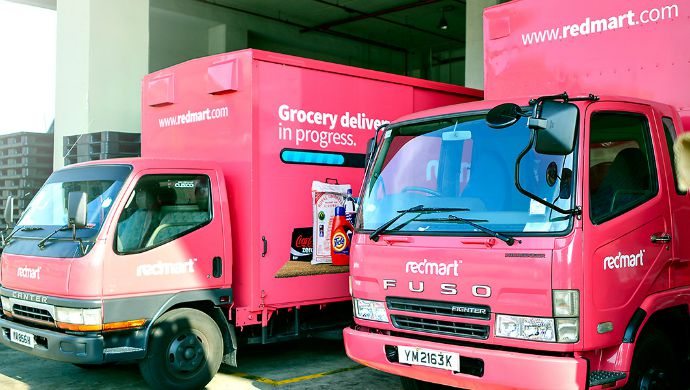The one thing we don’t yet have enough of is soft landings. And that’s where the Lazada-RedMart news is so encouraging

I’m cheering Lazada’s acquisition of RedMart – but probably not for the reason you think.
A couple of years ago, I wrote about the need for more soft landings. Why? To enable more risk-taking. Set up as many incubators as you want, but that isn’t going to incentivise new venture creation as much as a culture that, if even if it doesn’t quite applaud risk-taking, at least provides the chance of a safety net for those who don’t quite make it to the big time.
The Southeast Asian entrepreneurship scene has grown leaps and bounds over the last few years. The number of entrepreneurs and people aspiring to join startups has definitely hit critical mass. Whereas I might have been at most two degrees of separation away from every single person in tech start-up circles a few years ago, I’m not sure I can make that claim now. There is also a vastly greater amount of sectoral and functional depth in the market now.
The one thing we don’t yet have enough of is soft landings. And that’s where the Lazada-RedMart news is so encouraging.
Also read: Done deal: Alibaba-backed Lazada acquires online grocer RedMart
By all accounts, RedMart had been struggling for a while. Singapore is not an easy market to operate in. Consumers are sophisticated (read: informed and hard to please) while also being price-sensitive (read: informed and hard to please). On the back-end, costs are high.
Large rounds of later-stage start-up financing are still not easy to come by in South-East Asia, and RedMart was certainly one of our few trailblazers in this regard. Which is why, when the company’s investors threw up their hands this year, it was imperative for the health of the community overall that RedMart find a buyer.
Now, does this mean that this was a profitable sale for investors? Not likely. The earliest angels may have made money if all investors had pari passu status (very unlikely) or the latest investors may have got their money back if they had LIFO liquidation preference rights (but that means they wouldn’t make a profit). Either way, few if any are going home happy.
But again, that’s not the point: The entrepreneurial community, the broader matter of consumer choice and investors, all reap the benefits when entrepreneurs try new things, staff join them, and the market funds them. Even if the company doesn’t eventually get to the promised land.
The twist in all this, of course, is that Lazada was itself the beneficiary of a white knight in the form of Alibaba swooping in to rescue the company.
I didn’t comment on that deal when it happened because Lazada wasn’t a traditional start-up in the sense we really think of one. The spillover benefits to the overall community in terms of providing encouragement to other founders weren’t great, because Lazada (and other Rocket Group companies) although run by people with stellar backgrounds don’t really fit the image of traditional founder-driven start-ups.
—-
Murli Ravi is Co-founder at Unicorn Venture Capital. He is a seasoned venture capital fund manager who has overseen investments in over 20 ventures across India, Singapore, Silicon Valley, New York and Australia, from deal sourcing through to exit. His portfolio has spanned several industries while his primary focus has been digital media, enterprise software and analytics, having been a board member of 9 early-stage start-ups across these sectors.
Prior to venture capital, Murli was an investment professional at Temasek Holdings and conducted research at INSEAD.
The views expressed here are of the author’s, and e27 may not necessarily subscribe to them. e27 invites members from Asia’s tech industry and startup community to share their honest opinions and expert knowledge with our readers. If you are interested in sharing your point of view, submit your post here.
The post Why RedMart’s sale to Lazada matters appeared first on e27.